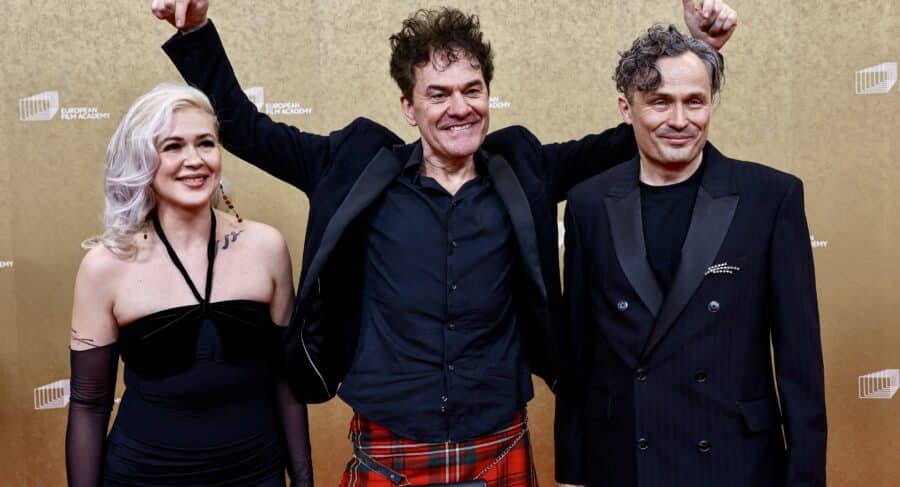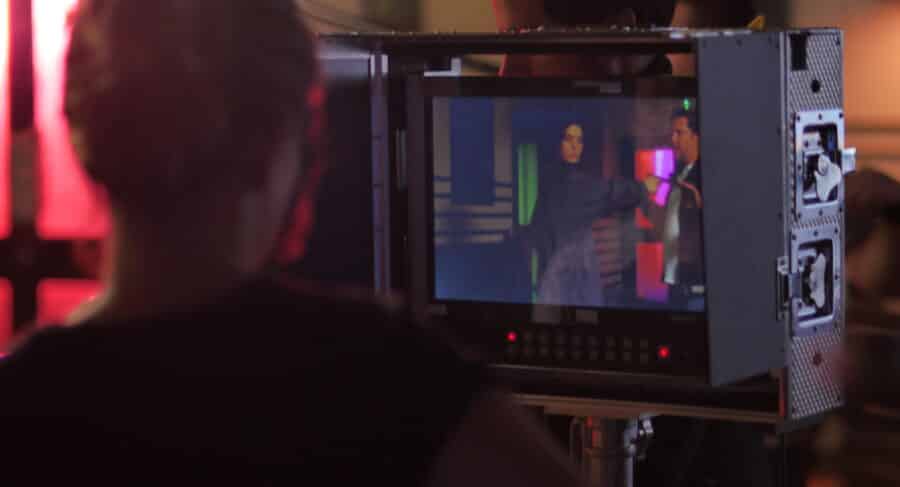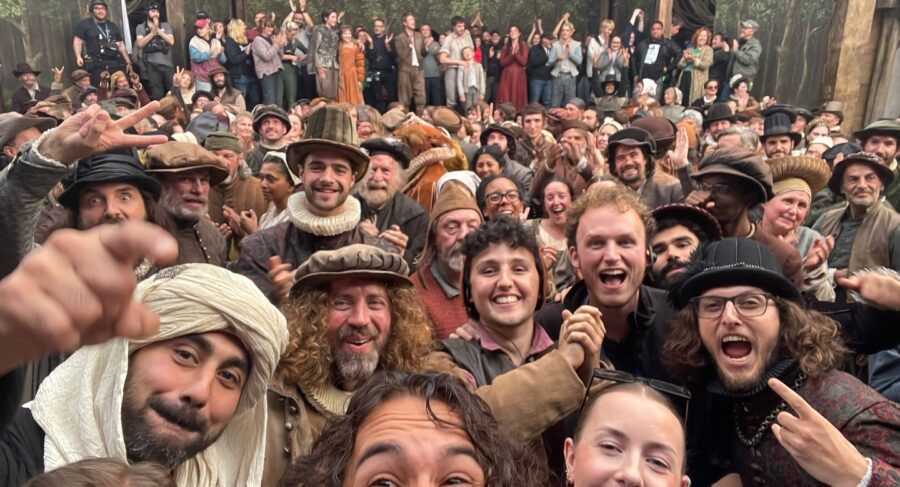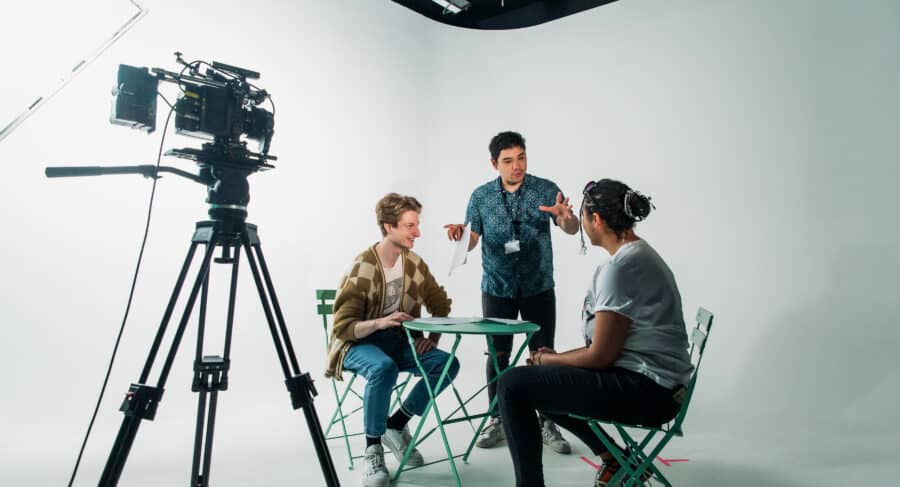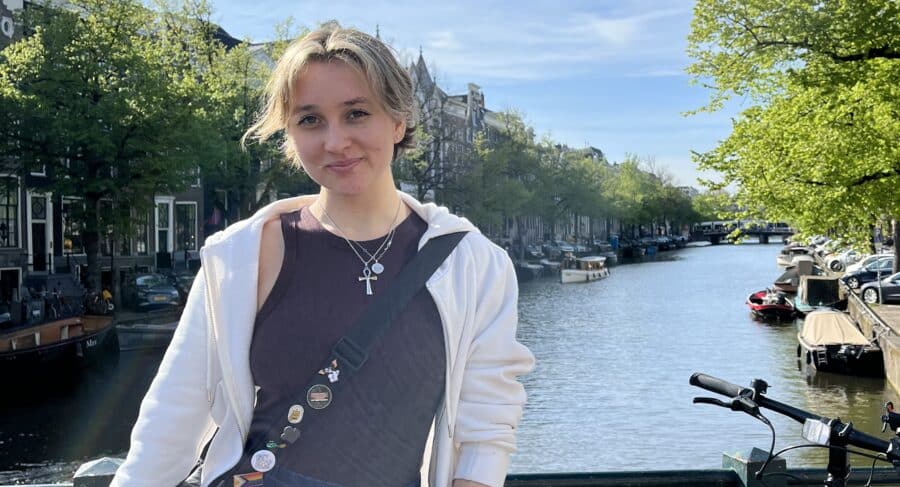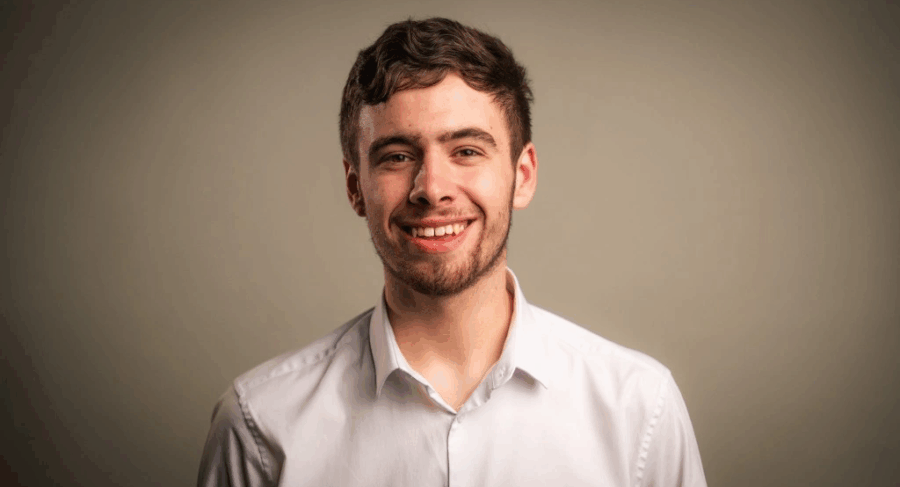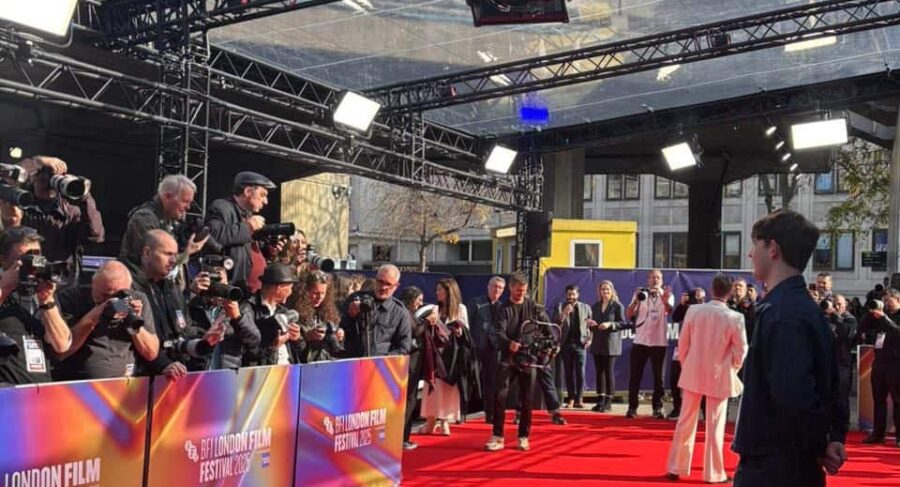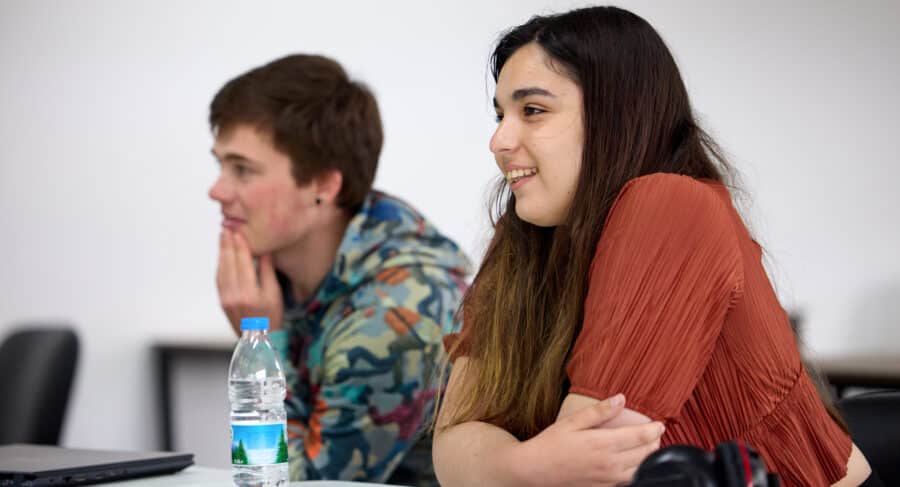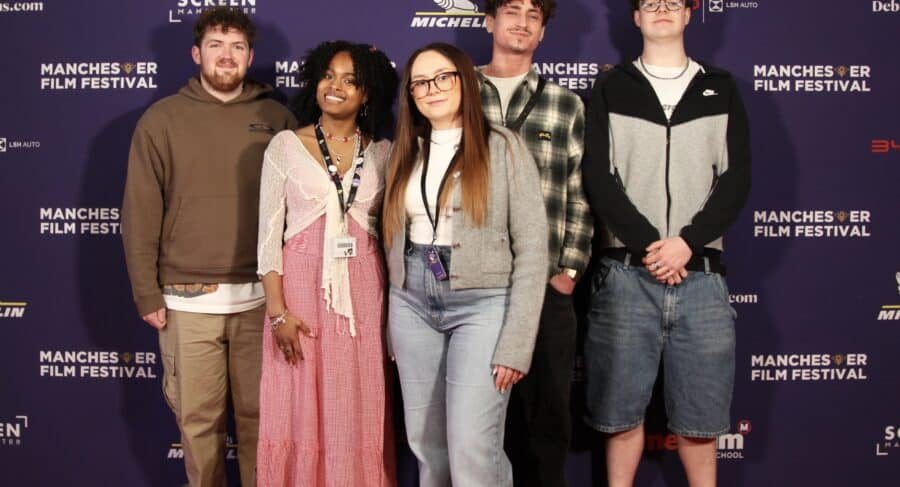MA Post Production graduate Andra Sascau on The Enfield Poltergeist
By MetFilm School
20 May 2025
While studying MA Post Production at our London campus, Andra Sascau’s cohort were given a particularly unique assignment: to edit a portion of MetFilm Production’s film, The Reason I Jump, a film about young neurodivergent people which particularly explored sensory perception.
After this experience, Andra went on to work with MetFilm Production as an Assistant Editor, including as 1st Assistant Editor on the Apple release, The Enfield Poltergeist.
We caught up with Andra Sascau to learn more about the art of post production:
When did you know that you wanted to work in post production?
I did a film production course at university where we learned about every stage of filmmaking – and post production attracted me the most. I mostly enjoy the technical aspect of it: learning the software, and finding solutions to any problems in the workflow that arise.
And how did MetFilm School’s MA Post Production prepare you for this career path?
It taught me how to be more organised in my projects, and how to think like an editor about narrative and performance. Most importantly, it also allowed me to explore and learn about other important jobs in post-production, like Assistant Editor, Sound Designer, and Colour Corrector.

When you were working as 1st Assistant Editor on The Enfield Poltergeist, what sort of things did your role involve?
The main job is to ensure that the edit suite runs smoothly. Making sure the footage is properly organised and ready to be edited, identifying and solving any technical problems, and liaising with other departments.
The Assistant Editor needs to make sure that the editor can focus completely on making the story work, and not on technical issues – though I also got the chance to edit some scenes for the assembly edit, which was very exciting.
The Enfield Poltergeist is a unique blend of fiction, non-fiction, and recreated footage. How did this impact the editing process?
There were quite a few challenges, as no one’s really done something like this before. The edit had to be done twice – first with just the audio from the tapes, and then once the filming was done.
The audio also had to be prepped into scenes and rehearsed with the actors using earpieces that would feed the audio to them. Usually, when editing a scene, the best takes are chosen based on the performance or edit flow – but here, we also had to consider lip syncing, which could limit our choices of take.
We then had to test a lot of the workflow, both before filming, and once the Sound Designer and Colour Corrector were on board. The main concern was that, since there were so many different ‘types’ of footage, there would be problems connecting them in the next stage of post. This was especially important since, a little unusually, we were a big production team using Adobe Premiere Pro.
And finally, now working as a Junior Editor for Spirit Studios, do you have a favourite project that you’ve worked on?
My favourite has to be The Enfield Poltergeist, since it was not only the first ‘big’ production I’ve worked on, but also because of the amazing people involved. Everyone was very understanding of the fact that it was my first industry job, and they all took the time to guide and teach me whenever I encountered any difficulties in my task.
Ready to shape the final cut? ?
At MetFilm School, our MA Post Production course gives aspiring editors, colourists, and sound designers the creative and technical tools to bring stories to life in the edit suite.
You’ll learn industry-standard workflows across editing, sound, VFX, and colour grading, while developing a deep understanding of narrative, pacing, and emotion. Through collaborative projects, professional masterclasses, and hands-on training with industry software, you’ll refine your craft and prepare for a career in the heart of the post-production industry.
Apply now to study MA Post Production in London — and take your place behind the scenes where the magic really happens.

